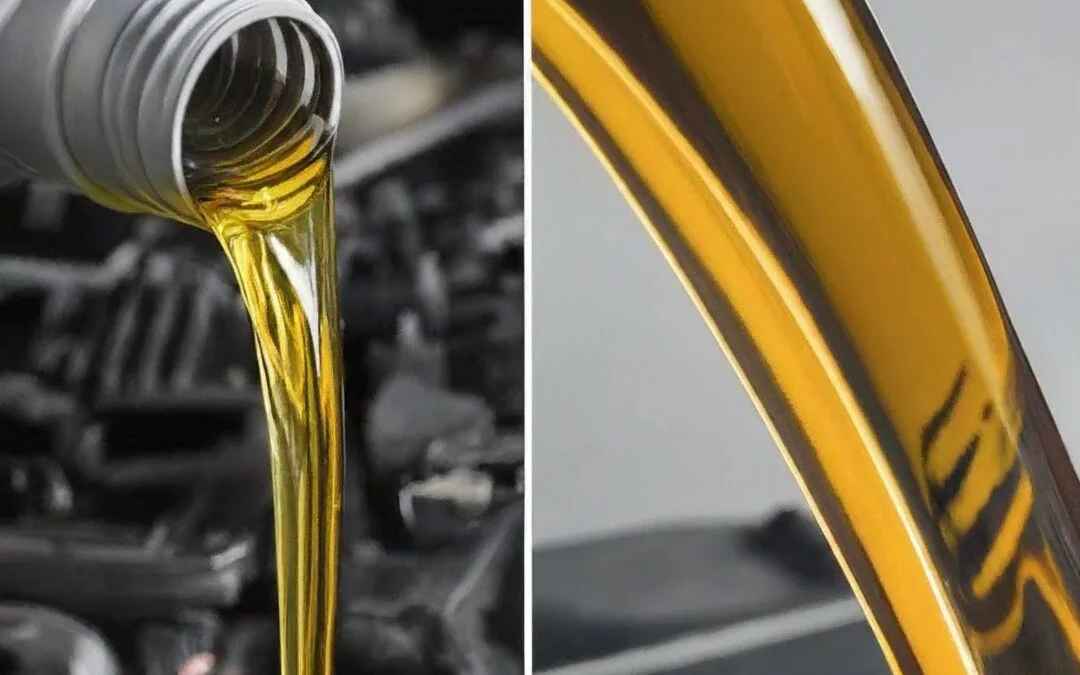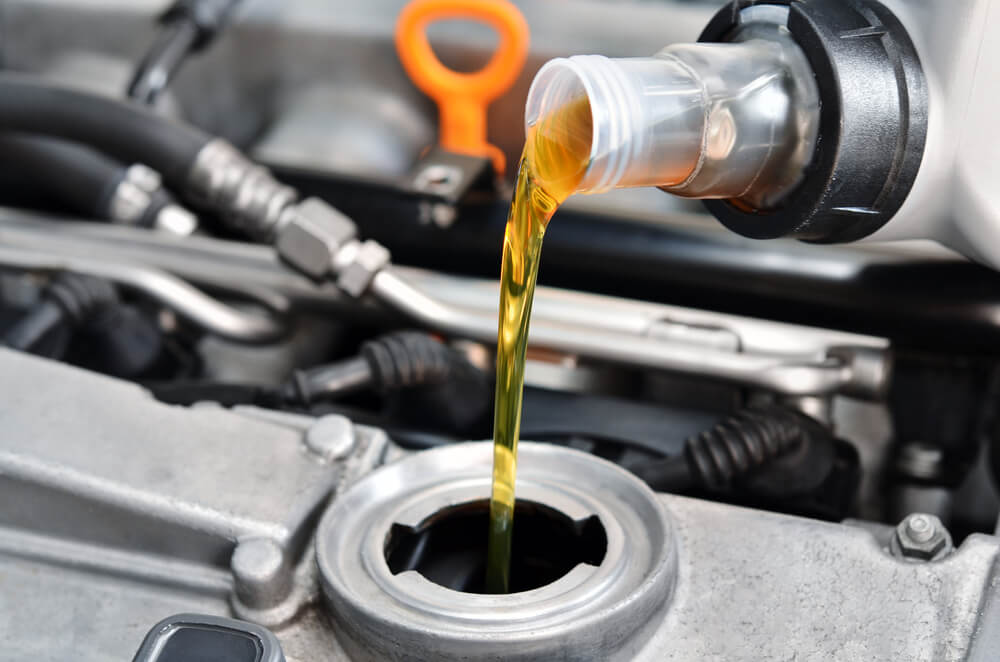Title: “How Long Is Motor Oil Good For? A Comprehensive Guide”
Introduction:
Have you ever wondered how long your motor oil remains effective and safe to use? There are many misconceptions surrounding the shelf life of motor oil, and it’s essential to separate fact from fiction. In this blog, we will delve into the topic of “How Long Is Motor Oil Good For?” to shed light on the factors influencing its longevity, the signs of expiration, and how you can make the most of your motor oil while keeping your engine in optimal condition. So, let’s embark on a journey to unravel the secrets of motor oil shelf life and ensure your engine’s well-being
Understanding Motor Oil Shelf Life
Motor oil is more than just the fluid that keeps your engine running smoothly; it’s a complex chemical composition carefully designed to protect and lubricate your engine’s vital components. Yet, like any other product, motor oil has a shelf life. Understanding motor oil shelf life is crucial for maintaining engine health and performance.
What is Motor Oil Shelf Life?
Motor oil shelf life refers to the period during which motor oil can be stored and effectively perform its intended functions in an engine. It’s important to note that motor oil does not “expire” in the traditional sense, but its performance can degrade over time.
Factors Affecting Motor Oil Shelf Life
Several factors can influence the shelf life of motor oil:
- Environmental Conditions: Extreme temperatures, humidity, and exposure to sunlight can accelerate oil degradation. Storing oil in a cool, dark place is ideal.
- Type of Motor Oil: Synthetic and conventional motor oils have different chemical compositions, affecting their shelf life. Synthetic oils tend to have a longer shelf life due to their stability.
- Storage Methods: The container’s seal, cleanliness, and the presence of contaminants all play a role. Proper storage can extend motor oil’s shelf life.
Importance of Adhering to Recommended Storage Guidelines
Following the manufacturer’s recommended storage guidelines is essential for maintaining motor oil’s shelf life. Proper storage ensures that the oil retains its viscosity and additives, which are critical for engine protection.
Understanding motor oil shelf life is not only about preserving the oil; it’s about safeguarding your engine’s health. Over time, motor oil can break down, lose its lubrication properties, and develop harmful deposits. This can lead to increased friction, reduced fuel efficiency, and engine wear and tear.
How Shelf Life Varies for Synthetic and Conventional Motor Oil
Shelf life, the duration during which motor oil can be effectively stored, varies between synthetic and conventional oils due to their unique compositions and characteristics.
- Synthetic Motor Oil:
- Extended Shelf Life: Synthetic motor oil generally has a longer shelf life compared to conventional oil. Its stable molecular structure and resistance to oxidation mean it can remain viable for a more extended period.
- Resistance to Breakdown: Synthetic oil is less prone to breaking down due to environmental factors, making it a more dependable choice for those who may not use motor oil as frequently.
- Conventional Motor Oil:
- Shorter Shelf Life: Conventional motor oil typically has a shorter shelf life due to its susceptibility to oxidation and breakdown over time. It’s crucial to use and replace conventional oil within its recommended time frame.
- Pros and Cons of Each Type Concerning Shelf Life
Synthetic Motor Oil:
- Pros:
- Longer shelf life, making it suitable for occasional or seasonal vehicle use.
- Greater stability in various storage conditions.
- Reduced likelihood of developing harmful deposits during storage.
- Cons:
- Higher initial cost compared to conventional oil.
- May be overkill for vehicles with standard driving conditions.
Conventional Motor Oil:
- Pros:
- Economical choice for those on a tight budget.
- Readily available and compatible with most engines.
- Cons:
- Shorter shelf life, necessitating more frequent oil changes.
- Limited protection during extreme conditions or extended periods of inactivity
Signs of Expired Motor Oil: Don’t Overlook These Red Flags
Motor oil is the unsung hero of your engine, keeping it running smoothly and efficiently. However, even the best oils have a finite lifespan, and it’s essential to recognize the signs of expired motor oil. Neglecting these indicators can lead to engine damage, reduced performance, and costly repairs. In this guide, we’ll uncover the telltale signs that it’s time for an oil change.
1. Discoloration: Fresh motor oil is a translucent amber or light brown color. As oil ages, it darkens, and eventually, it may appear almost black. This change in color is often a sign of contaminants and chemical breakdown, indicating that the oil is no longer as effective in lubricating your engine.
2. Unpleasant Odor: If you detect a burnt, acrid, or musty smell when you check your oil dipstick, it’s a clear sign of oil breakdown. Fresh oil has a relatively neutral odor, but as it deteriorates, it can emit an unpleasant scent.
3. Increased Engine Noise: One of the essential functions of motor oil is to reduce friction between engine parts. Expired oil may no longer provide adequate lubrication, leading to increased engine noise, such as knocking or tapping sounds.
4. Reduced Fuel Efficiency: Expired oil can lead to increased friction, which forces the engine to work harder. This additional strain can result in decreased fuel efficiency, meaning you’ll find yourself at the gas pump more often.
5. Sludge Buildup: As motor oil deteriorates, it can form sludge, a thick, gooey substance that can clog the engine’s passageways. Check the oil cap or the valve cover for signs of sludge. If you find it, it’s a clear indication that your oil needs to be changed promptly.
6. Poor Engine Performance: Expired oil can compromise your engine’s performance, causing sluggish acceleration, reduced power, and overall suboptimal operation. If your vehicle feels less responsive, it might be time for an oil change.
7. Warning Lights: Modern vehicles are equipped with oil pressure warning lights or check engine lights. If you notice these indicators illuminated on your dashboard, it’s a clear sign that something is amiss with your engine, and it could be related to the condition of your motor oil.
8. Increased Engine Heat: Engine oil helps regulate engine temperature by dissipating heat. Expired oil may not perform this function effectively, leading to overheating and potential engine damage.
Recognizing these signs of expired motor oil is crucial for maintaining your engine’s health and longevity. Regular oil changes, as per your manufacturer’s recommendations, are the best preventive measure. When in doubt, consult your vehicle’s owner’s manual and seek professional advice to ensure your engine continues to operate at its best. Don’t underestimate the importance of fresh, high-quality motor oil in the well-being of your vehicle.
Extending the Shelf Life of Motor Oil: Keeping Your Engine’s Vital Fluid Fresh
Motor oil is the lifeblood of your engine, ensuring smooth operation and longevity. While every vehicle owner knows the importance of timely oil changes, fewer may consider the significance of extending the shelf life of motor oil. Proper storage and care can help you maximize your oil’s usefulness and protect your engine. In this guide, we’ll explore the key strategies for extending the shelf life of your motor oil.
1. Ideal Storage Conditions:
Storing your motor oil in optimal conditions is the first step to prolonging its shelf life. Here’s what you need to do:
- Temperature Control: Keep your oil in a cool, consistent temperature environment. Extreme heat or cold can accelerate oil breakdown. A basement, garage, or temperature-controlled storage area is ideal.
- Dark and Dry: Protect your motor oil from exposure to direct sunlight and humidity. Store it in a dark, dry place. Exposure to light and moisture can degrade the oil and reduce its shelf life.
2. Use Quality Containers:
The container in which you store your motor oil matters. Consider the following:
- Seal the Container: Ensure the cap or lid is tightly sealed to prevent air from entering. Oxygen can lead to oxidation, which deteriorates the oil.
- Clean Container: Use a clean, dry container for storing motor oil. Contaminants can compromise the oil’s quality over time.
3. Prevent Cross-Contamination:
Avoid using the same container for different oil types or brands. Mixing oils can lead to chemical reactions, causing the oil to break down more quickly. Stick to one type and brand of oil in each container.
4. Use a Clean Funnel:
When transferring motor oil from one container to another, use a clean funnel. Any dirt or debris introduced into the oil can promote oxidation and affect the oil’s longevity.
5. Label and Date:
Maintain clear labeling on your oil containers, indicating the type of oil, its grade, and the date it was stored or purchased. This practice ensures you use the oldest oil first.
6. Regularly Inspect Your Oil:
Don’t overlook the importance of periodically inspecting your stored motor oil. Look for signs of discoloration, sediment, or any unusual odors. If you notice these changes, it may be time to dispose of the oil.
7. Rotate Your Stock:
To prevent oil from sitting unused for extended periods, consider rotating your stock. Use the older oil before newer additions to your collection. This practice ensures that your oil remains relatively fresh.
Extending the shelf life of motor oil isn’t just about preserving the fluid; it’s about safeguarding your engine’s health. By following these tips, you can ensure that your engine receives the protection it needs from fresh, high-quality motor oil. Proper storage and care not only save you money but also contribute to the longevity of your vehicle’s engine.
Conclusion:
Recognizing the signs of expired oil and taking timely action can save you from costly engine repairs and enhance fuel efficiency. As we’ve explored the distinct characteristics, shelf life, and pros and cons of both synthetic and conventional oils, you’re now better equipped to make informed choices for your vehicle. By following guidelines for extending the shelf life of motor oil, you not only maximize your investment but also contribute to the continued reliability of your engine. Regular oil changes and vigilant care of your oil supply ensure that your engine remains in peak condition, ready for the journeys ahead. So, remember to check, change, and cherish your motor oil—it’s the lifeblood that keeps your engine running strong
Usefull links:
https://www.oceanworksberkeley.com/blog/does-oil-go-bad-sitting-in-an-engine
FAQs: How Long Is Motor Oil Good For?
- What is the shelf life of motor oil?
- The shelf life of motor oil varies depending on its type and storage conditions. Typically, synthetic oil has a longer shelf life than conventional oil, but it’s advisable to use motor oil within 3 to 5 years if stored properly.
2. Can expired motor oil damage my engine?
- Yes, using expired motor oil can lead to reduced engine performance and potential damage. The oil’s lubrication properties degrade over time, which can result in increased friction and wear on engine components.
3.How can I extend the shelf life of my motor oil?
- To extend the shelf life of motor oil, store it in a cool, dark, and dry place, ensure containers are sealed tightly, and use clean funnels and containers to prevent contamination.
4.How can I tell if my motor oil has expired?
- Signs of expired motor oil include a change in color (darkening), an unpleasant odor, increased engine noise, reduced fuel efficiency, sludge buildup, poor engine performance, and warning lights on your dashboard.
5. Is it safe to mix different brands or types of motor oil?
- It’s generally not recommended to mix different brands or types of motor oil. Mixing can result in chemical reactions that affect the oil’s performance and stability.
6. How can I dispose of expired motor oil in an eco-friendly way?
- Contact your local recycling or waste management facility to find out about their motor oil recycling programs. Many places offer free recycling services for used motor oil to help protect the environment.
7. Is there a difference in shelf life between opened and unopened motor oil containers?
- Opened containers of motor oil may have a slightly shorter shelf life compared to unopened ones, but proper sealing and storage can still help maintain their viability.
8. Do different motor oil brands have varying shelf life recommendations?
- Shelf life recommendations may vary between brands, so it’s essential to consult the specific manufacturer’s guidelines on the product label or website for accurate information.
9. Can I use expired motor oil in an emergency?
- If you’re in a pinch, you can use expired motor oil temporarily, but it’s best to change it as soon as possible to prevent potential engine damage.
10. Why is it essential to follow manufacturer recommendations for oil changes and storage?
- Following manufacturer recommendations is crucial because they are based on extensive testing and research to ensure your engine’s longevity and performance. Ignoring these guidelines can lead to costly repairs and reduced engine life.





Leave a Reply